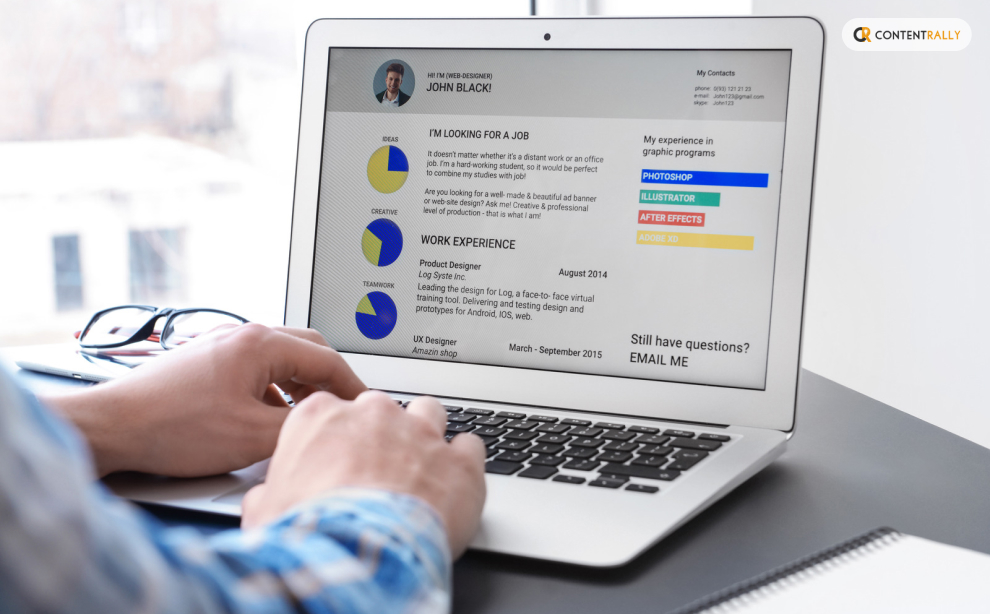When job hunting, a standout resume is the first step in the door with a potential employer. But another component that should never be overlooked is the cover letter for the resume.
It’s your chance to show some personality in addition to your resume and tell a story.
Whether it is how and why you’ve made it to this point or why you are right for the candidacy.
Let’s run through some other resume tips and how they all fit together. Especially when you’re writing that ever-important cover letter for your next big opportunity.
Why A Cover Letter?

Before discussing structure and style, it’s worth considering why a cover letter is still essential to any job application.
While a resume or CV offers the facts about your experience and skills to date, the cover letter sets you apart. It sets the scene for who you are and why you’ll be perfect for the role.
1. A Strong Opening

At any given time, on average, there may be anywhere between 50 to 200 applications sent in for one advertised position.
So, how do you make your application shine while ensuring accuracy?
The best way to grab the reader at hello (or, indeed, their first sight of your application). How about a quick taste hinting at what they will soon discover?
Show them an enthusiastic interviewee brimming with excitement over the prospect of working with them.
2. Personalize & Make It Stand Out

One of the most important resume tips is never to be generic when writing a cover letter.
You want your cover letter for your resume to stand out!
Not sound like it was written by someone who submitted their application for every company advertised on the job boards.
Make sure you speak specifically about why you are interested in that job with that company.
Also, do some research before you apply for the job to get a feel for the type of company it is. Then, try incorporating similar values or beliefs about the industry into your cover letter.
For Example,
If the company you’re applying to is big on innovation and you’ve previously worked on a creative project, put it at the very start. It’ll make your cover letter more memorable.
“I am interested in applying for the Marketing Manager position at [Company Name]. I’m passionate about being able to tell creative stories and have developed and delivered some innovative campaigns. Which I feel would be a great fit for your team!”
3. Show, Don’t Just Tell

One of the most important resume tips when writing a cover letter is to support your claims with evidence.
Instead of saying, “I have strong conceptual skills,” give an example showing your leadership in action.
For Example,
“I oversaw leading a team of 10 to create a social media strategy that boosted engagement by 30% in 6 months. My direction helped the team to work together effectively.”
By giving specific examples, you don’t just make the hiring manager understand what you can do, but you also talk about your achievements.
4. Connect Daily Work To Job Title

Another great resume tip is to read the job posting closely and consider connections between your day-to-day experiences and what the company seeks. Now, highlight the same for your cover letter for your resume.
If the job description mentions that you need experience with customer relationship management (CRM) systems, you have it; mention it!
Don’t leave it up to the hiring manager to determine your qualifications.
For Example:
“I have worked with Salesforce for five years and know I can oversee and enhance CRM systems to facilitate customer engagement and business development.”
5. Don’t Just Paste Your CV

Your cover letter shouldn’t be a rehash of your CV!
Plus, recruiters get frustrated when they must read the same thing after reading your resume.
To take advantage of the ‘cover’ part of the cover letter. Yes, you need to use it as an opportunity to explain how you would benefit from an employer.
The best way to do this is not with complex and lengthy sentences but with clear and confident writing.
Let your cover letter show enthusiasm (a love, even) for the job.
For Example,
“I’ve always been impressed with [Company Name]’s reputation for sustainability, and amazingly. Your team is truly committed to innovation and the future.”
You can end it well with this!
“Thank you for considering my application. I look forward to discussing how my experience and skills could contribute to your organizational goals. Please contact me at your convenience so that we can schedule a time to speak or meet.”
6. End It Well!

End your cover letter for your resume on a high note!
Politely let the employer know that you’ll be in contact to schedule an interview. Plus, don’t forget to mention how excited you are to apply for the position.
For Example:
“I would welcome the chance to speak with you further about how I could benefit [Company Name]. Thank you for your consideration. I hope to have the opportunity to contribute to your team.”
7. Proofread For Perfection

This is probably the most important part of writing a cover letter!
Keep it free from grammatical errors!
Typos and grammatical errors can make even the best-written cover letter appear sloppy and unprofessional!
One of the most basic yet frequently overlooked resume tips is double-checking your cover letter for typos. You want to show that you’re careful, and typos don’t give that impression!
Before you submit it, take the time to re-read your cover letter. Especially if it is a fresher cover letter. Get a friend or mentor to read it and provide feedback. A peer removal can always be useful in catching something that you missed.
7. Keep The Format Simple And Professional

Also, remember to pay attention to the formatting of your cover letter. Keep the contents on a single page and use spacing effectively.
In addition, maintain a professional tone while providing insight into your personality so that your letter leaves an employer wanting to learn more about you.
They shouldn’t lose track while reading huge paragraphs! That is a major buzz kill, and they might not even finish reading it!
At the top of the letter, include your name and address (alternatively, you can include your phone number/ email but not both), followed by the date and the recipient’s name and address.
If you can’t find this information easily, you can put yourself ahead of other applicants by addressing it properly: “To the Hiring Manager” or “To Whom It May Concern.”
Yes, (Before You Ask Again), It Is Important!
Never ignore the power of a cover letter for a resume. A resume is just data, but a cover letter is your chance to tell why you became the person you are today and why the position you’re applying for is the perfect next chapter in your career.
Many job seekers may think the cover letter is less important than the resume. However, writing a strong introduction makes it easier for the employer to connect with you and put your resume on top of the stack.
Employers won’t even look at your resume if they aren’t impressed with your cover letter.
So, consider it an opportunity to bridge your resume to an interview.
To show personality and excitement about the position and get them to want to know more about you!
It’s a process, so be patient.
Work on personalizing each one before sending it out, and spell-check everything!
&
If our tips got you at that job interview, don’t forget to check out the interview questions to prepare yourself better!
Read Also:






















